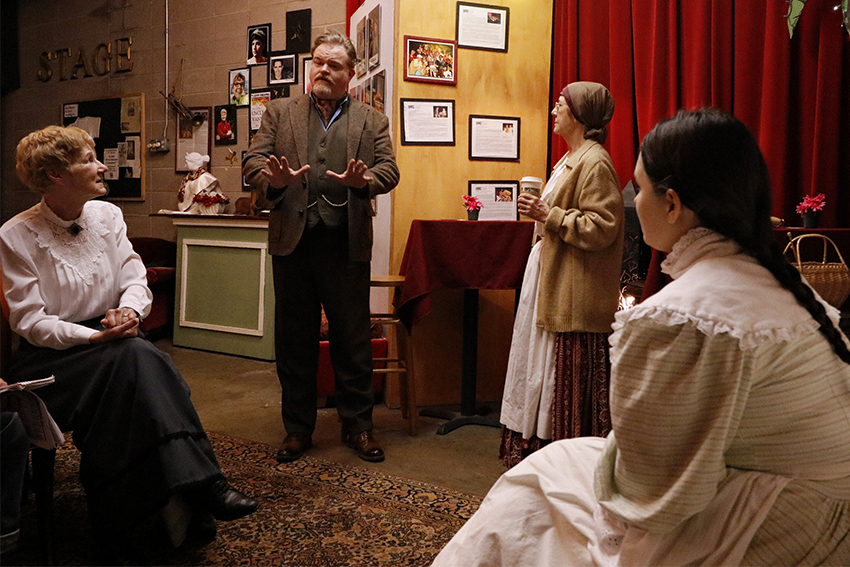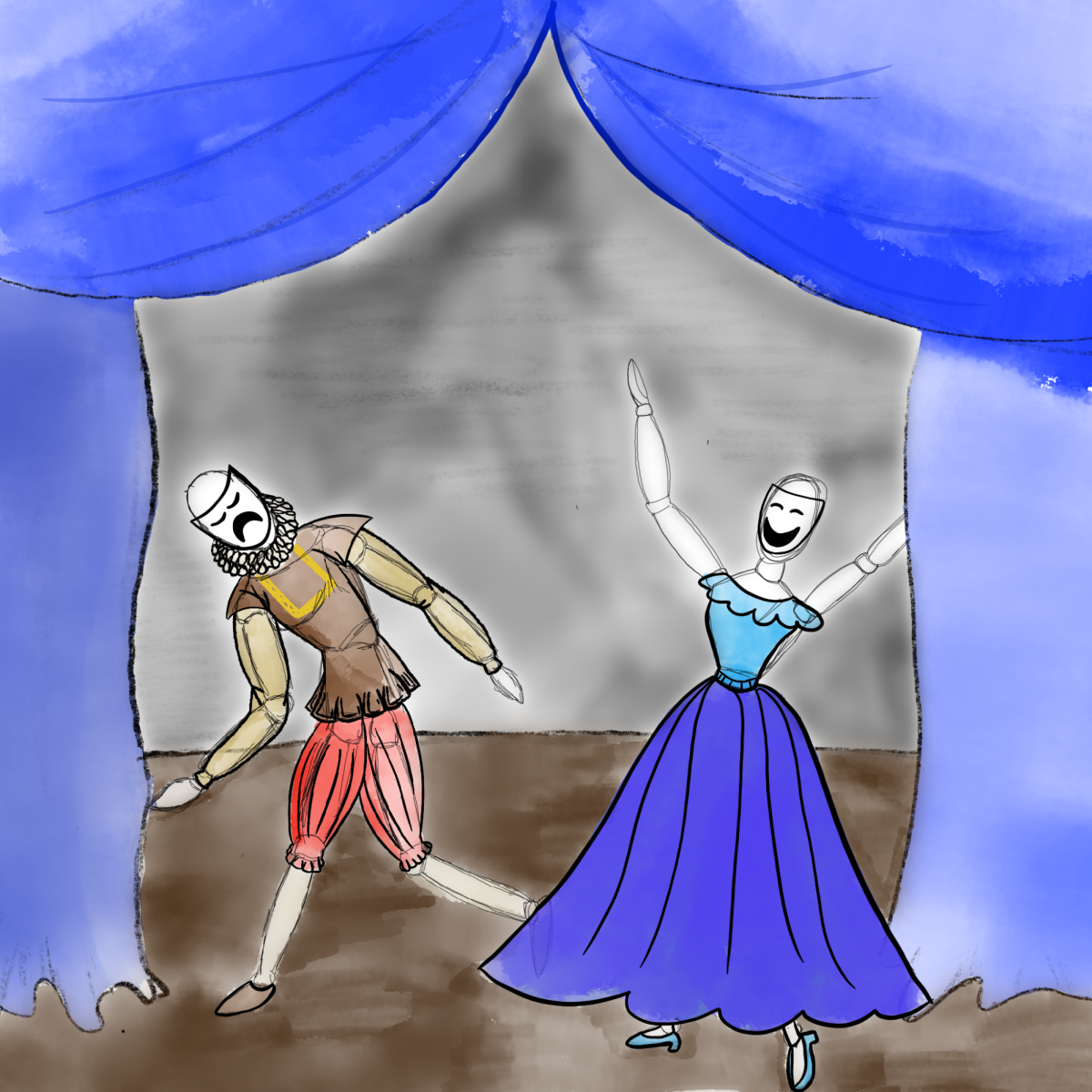Students can now travel through time and space, thanks to a local theater company located just minutes away from campus. The City Theatre Austin is well known for its classic performances, and since Jan. 12, the company has been immersing audiences in 19th-century Russia.
Now entering its last week of production, The City Theatre’s production of Anton Chekhov’s “Uncle Vanya” provides a thought-provoking commentary on personal, existential and environmental issues that are just as pertinent today as they were when the play first debuted more than one hundred years ago.
“Uncle Vanya” is a family drama in which the retired professor Serebryakov and his wife Yelena move into an estate run by his brother-in-law, Vanya. Vanya soon finds himself falling in love with Yelena while becoming jealous of Serebryakov, who he has been supporting financially. All the while, family friend Dr. Astrov spends more time at the estate as he, too, is in love with Yelena. The actors of the play said “Uncle Vanya” delivers powerful commentary on relevant social and environmental issues, such as sustainability, the role of women in society and finding one’s purpose in life.
Veteran actor Matt Flynn plays Serebryakov, a character who feels trapped in his aging mind and body and is dealing with the reality that his “glory days” as a renowned professor are over. Flynn says this melancholy is what Chekhov was trying to save his audience from.
“When Chekhov wrote this play, his idea was to put a mirror to the audience and show their lives,” Flynn said. “And to kind of lend the idea that they don’t have to be so shackled by their own limitations, that they can break free.”
Each of the nine characters serves either as a catalyst for change or a representative of the status quo. One of these catalysts is Dr. Astrov, played by writer and actor Andrew Fisher. During the play, Fisher delivers multiple passionate monologues as Astrov where he critiques man’s rampant, irresponsible use of nature for resources with little thought for sustainability.
“The interesting thing about Chekhov is he was writing in 1890, but he is very much our peer in a lot of ways,” Fisher said. “There is definitely this care and concern for the earth (and) for the environment that remains relevant.”
Fisher said Chekhov also went against social norms of the time by crafting strong female characters who solve problems created by men in positions of power.
“He wrote some really amazing parts for women,” Fisher said. “I think he was very sensitive to the roles of men and women in society. I think there’s some commentary on that in this play.”
In “Uncle Vanya,” Serebryakov’s daughter, Sona, played by actor Julia Salas, handles conflict more maturely than the grown men of the house. Salas said having characters deal with these timeless questions is part of what bridges for this play in modern times.
Unfortunately, none of the characters in the play achieve their goals or find the catharsis they are looking for, an outcome that Salas said adds authenticity to the story.
“It’s depressing if you look at it that way, but on the other side, it’s also very realistic,” Salas said. “We don’t always get that answer, no matter how much we seek it, and sometimes the answers we get are not what we were hoping for.”
You can catch The City Theatre’s “Uncle Vanya” this week from Thursday, Feb. 1 through Saturday, Feb. 4.





















